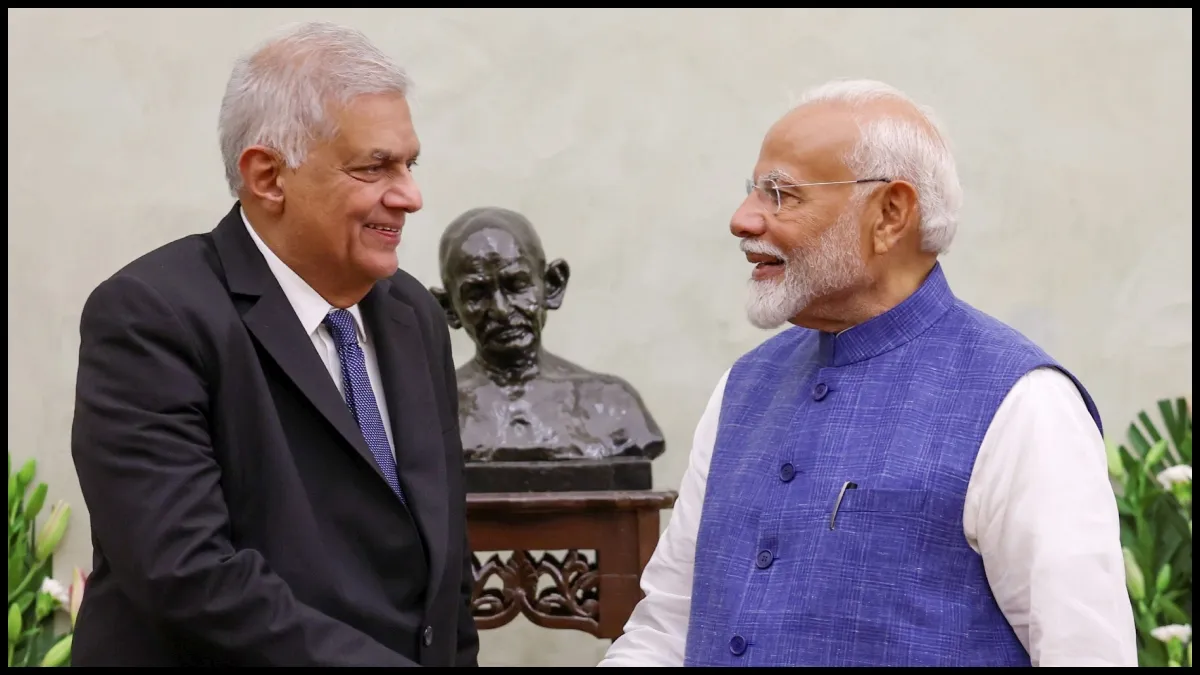Colombo: Sri Lanka will hold its next presidential elections on September 21, according to the Election Commission on Friday, ending the months-long speculation over the key contest and the first election since an unprecedented economic crisis in 2022 spurred widespread unrest in the country. The crucial vote is expected to determine the future of reforms in the cash-strapped country.
The government gazette issued on Friday said in terms of Article 31 (3) of the Constitution the election would take place on September 21 while the nominations would be accepted on August 15. Incumbent President Ranil Wickremesinghe, 75, is the first candidate to submit his nomination by paying a non-refundable deposit to the election commission.
The announcement came as opposition leaders had expressed concerns that the presidential elections may not be held at all, despite the government repeatedly insisting that the election would be held on time. Alongside Wickremesinghe, Field Marshal Sarath Fonseka, Sri Lanka's former Army chief and the architect of the military offensive that led to the annihilation of the LTTE, has declared his candidacy.
How India helped Sri Lanka in economic crisis
Sri Lanka was hit by an unprecedented financial crisis in 2022, the worst since its independence from Britain in 1948, due to a severe paucity of foreign exchange reserves, sparking political turmoil in the country which led to the ouster of the all-powerful Rajapaksa family. The island nation, which declared its first-ever credit default in mid-April last year, secured a bailout of $2.9 billion from the IMF in March last year.
A quarter of the population was pushed into poverty and thousands were forced to migrate due to higher taxes imposed under the International Monetary Fund (IMF) programme, prolonged inflation, and a stagnant job market. Tens and thousands of people took to the streets and demanded former President Gotabaya Rajapaksa to step down for failing to tackle the nation's gravest economic crisis.
Rajapaksa was forced to flee the country on July 9, 2022, and Wickremesinghe, who was the Prime Minister at the time, was elected by the Parliament to succeed Rajapaksa at a time when Sri Lanka's foreign debt multiplied and the poverty rate doubled. The World Bank also provided a $700 million assistance package for the country.
India provided Sri Lanka with a lifeline of $4 billion in the first quarter of 2022 which paid for food and essentials imports in the balance of payment crisis. A new Line of Credit (LoC) of $ 500 million was extended to Sri Lanka for the purchase of petroleum products from India and a $1 billion Credit Facility for the supply of essential items including food items, medicines, fuel etc. was extended to Sri Lanka in March 2022.
Additionally, more than 26 tons of drugs and other medical supplies were provided to Peradeniya University Hospital, Jaffna Teaching Hospital, Hambantota General Hospital and Ambulance Service ‘1990’ in April-May 2022 to meet the acute shortage of medicines.
How Sri Lanka's economy performed under Wickremesinghe?
Helped by a $2.9 billion IMF bailout programme, Wickremesinghe has stitched back the shattered economy, bringing down inflation from a steep 70 per cent in September 2022 to 1.7 per cent in June, strengthening the rupee and rebuilding previously decimated foreign exchange reserves. Sri Lanka's economy is expected to grow 3 per cent in 2024 after shrinking 2.3 per cent last year and 7.3 per cent during the height of the crisis.
Bilateral creditors including Japan, China, and India signed up to a $10 billion debt rework last month, which gave Colombo breathing space to defer repayments for four years and save $5 billion. However, Sri Lanka still has to put the finishing touches on a preliminary agreement with bondholders on restructuring $12.5 billion of debt ahead of a third IMF review later this year.
Sri Lanka's recovery is still very fragile and attempts to reverse the reforms could precipitate a new crisis, analysts say. The new government will need to ensure the reforms are taken forward and concluded to transform the economy and put it on a positive track, they say.
(with inputs from agencies)
ALSO READ | India-Russia to run China-built Sri Lanka airport soon: Aviation Minister says in major geopolitical victory

